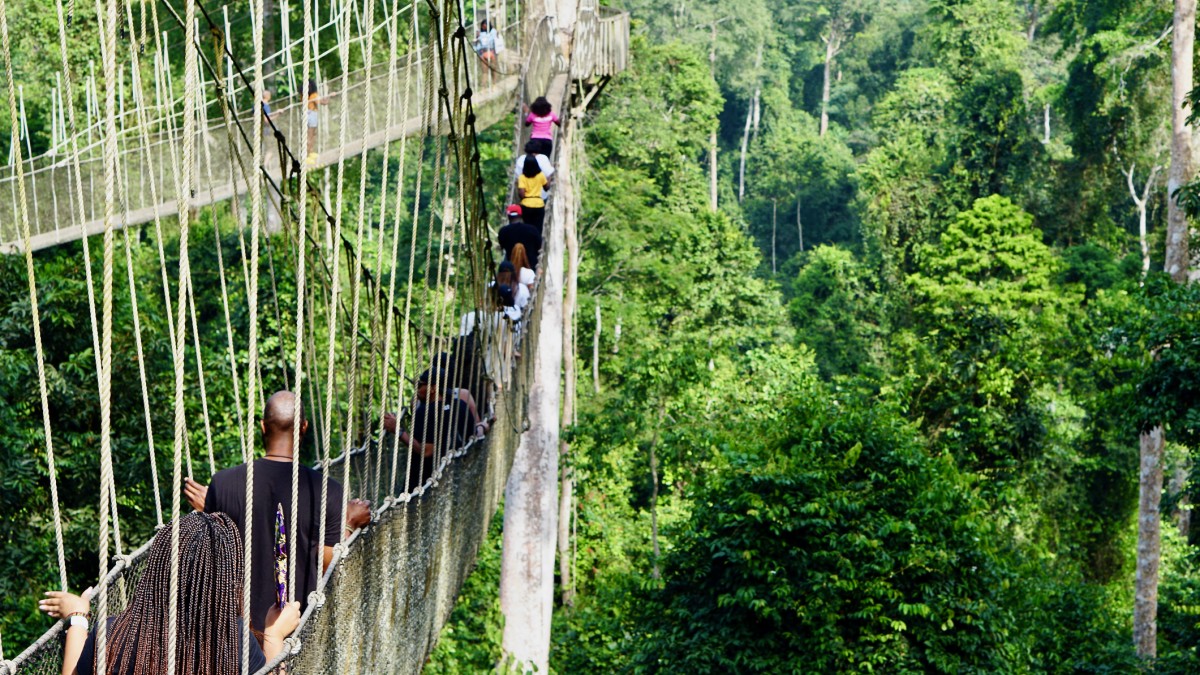How African tourism entrepreneurs found a way to weather the storm and thrive after Covid
Tourism entrepreneurs in Sub-Saharan Africa are not only weathering the storm of environmental uncertainty but are thriving amid adversity in emerging economies, according to a new study from the University of Surrey.

The study investigates the coping strategies used by micro, small, and medium-sized enterprises (MSMEs) in Ghana and Nigeria during the COVID-19 pandemic.
The paper, published in Tourism Management, gathered data from 844 participants and conducted in-depth interviews with 23 tourism entrepreneurs to understand the lived experiences of business owners as they navigated the unprecedented challenges posed by the pandemic.
The study found that problem-focused coping strategies—actions aimed at directly addressing challenges—significantly enhance both resilience and wellbeing among entrepreneurs. These strategies include operational adjustments (such as adjusting their daily work schedule or optimising their time management), resource management optimisations, and creative pricing tactics (such as strategies to respond to inflation or fluctuating market conditions). In contrast, emotion-focused coping strategies, which typically include emotional regulation and seeking social support, were found to be less relevant in managing the immediate challenges faced by these entrepreneurs.
Dr Manuel Alector Ribeiro, Associate Professor in Tourism Management and lead author of the study at the University of Surrey, said:
“Entrepreneurs in resource-scarce environments are often underestimated in their capacity to adapt and innovate under pressure.”
“Our findings highlight their incredible resilience and the proactive strategies they employ, which are essential not only for their survival but also for the broader economic landscape of these nations.”
Prof Albert Kimbu, Co-Director of the Centre for Sustainability and Wellbeing in the Visitor Economy and co-author of the study at the University of Surrey, said:
“What we need to understand is that resilience is not just an individual trait but a collective effort. Policymakers and entrepreneurship educators must prioritise training programmes that equip entrepreneurs with problem-solving skills, adaptive decision-making processes, and resilience-building techniques.
“By fostering community networks and collaborative decision-making, we can build a more robust entrepreneurial ecosystem that supports not just businesses but the livelihoods of entire communities.”
[ENDS]
Notes to editors
- Dr Manuel Alector Ribeiro and Prof Albert Kimbu are available for interviews, please contact mediarelations@surrey.ac.uk to arrange
- The full paper is available in Tourism Management
Related sustainable development goals

Featured Academics
Media Contacts
External Communications and PR team
Phone: +44 (0)1483 684380 / 688914 / 684378
Email: mediarelations@surrey.ac.uk
Out of hours: +44 (0)7773 479911

